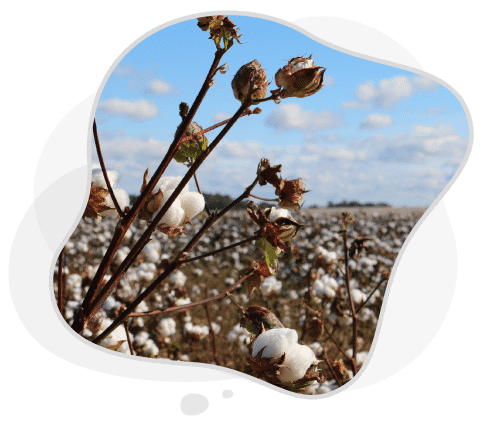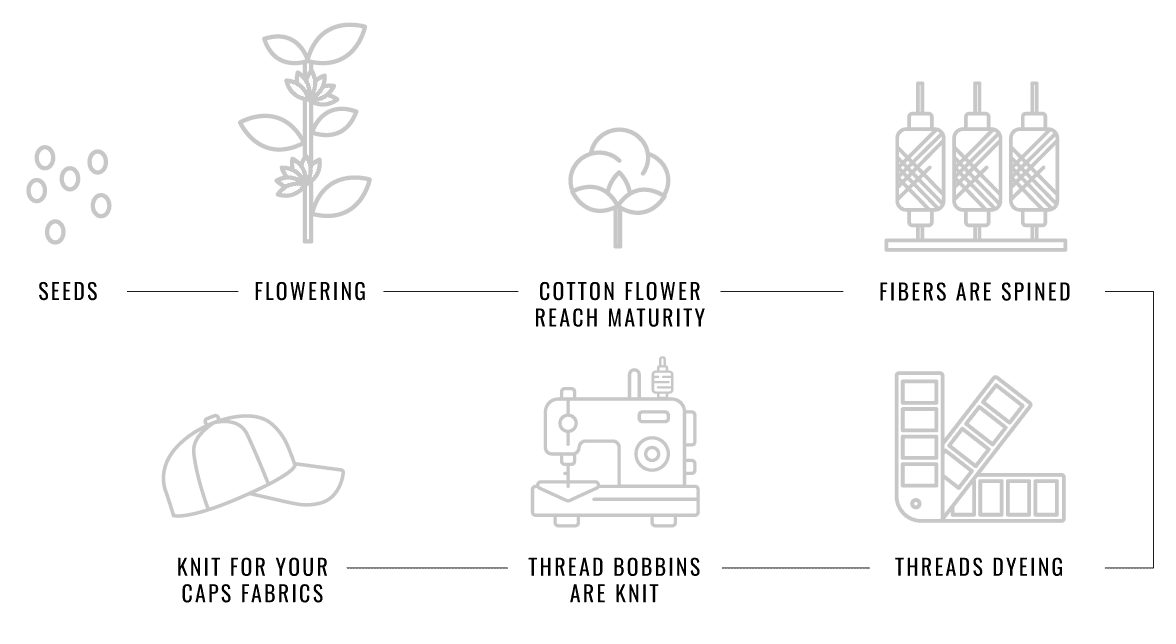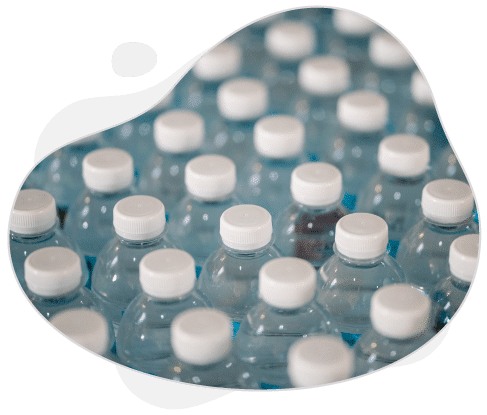Sustainability is as much important for you as for your brand?
We can combine a limited environmental impact with a great product thanks to our different eco-friendly materials.
Let us help to make your brand greener!
Option n ° 1 – Organic cotton: 
Cotton is the most common material in the textile industry, tis main downside being that the farming and transformation process can be quite bad for the planet as well as for ones health. A far more ecological option exists: organic cotton.
How is organic cotton better?
Organic cotton fields are treated without the use of pesticides or chemicals of any kind. Only a natural compost is used to replace all chemical fertilizers, heavy metals and chlorine in the farming process. Regarding the high water consumption that cotton needs, it decreases on organic soils because they contain more organic matter, which retains water and humidity far better.
So why isn’t organic cotton used everywhere?
The answer is very simple: it’s pricier than standard cotton and the production capacity on the same surface is lower. In the end it’s only a question of cost and productivity.
What is the cotton manufacturing process?
Here is an illustration which helps you understand.

 Option n°2 – Rpet:
Option n°2 – Rpet:
Recycled plastic, also called Rpet, is made of plastic wastes. Thus, it can be recycled over and over.
Regarding the manufacturing process, it’s pretty straight forward, the plastic is sorted, cleaned and crushed until it becomes small plastic flakes. They are then melted and spun to obtain a textile fiber.
What are the advantages of Rpet?
The reuse of plastic bottles and packaging decreases the rate of plastic waste in the ocean. It also requires less energy compared to cotton, we’re talking about 59% less.
Does Rpet offer the same quality and specs as traditional polyester?
The quality is equivalent to traditional polyester. Even the texture is very similar between both fabrics it can be pretty difficult for the sake eye to tell the difference.

Slowly but surely and thanks to these materials, we can improve the ecological footprint of the textile industry, which is one of the most polluting unfortunately.
If you want to know more about our eco-friendly materials, do not hesitate to contact us!



